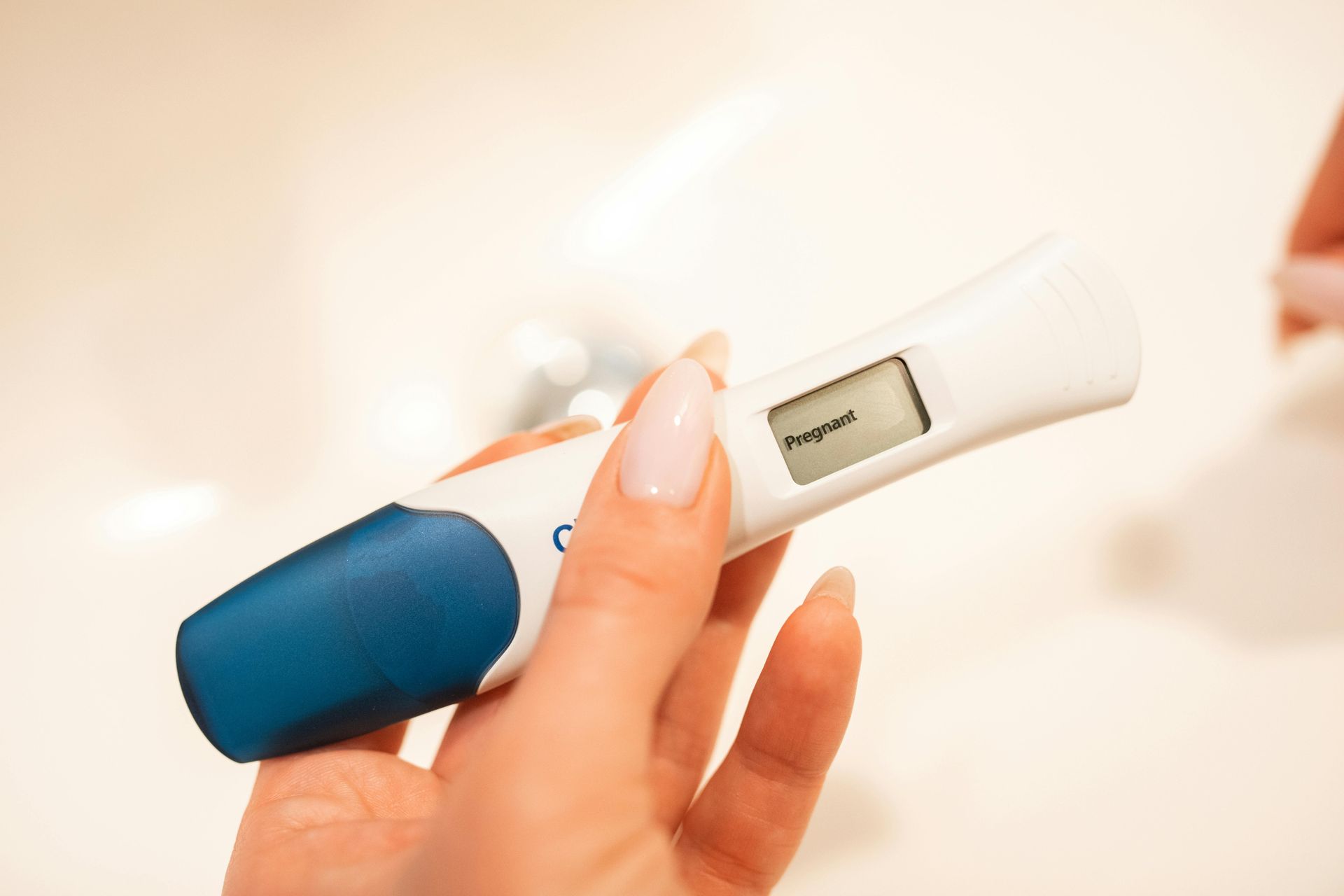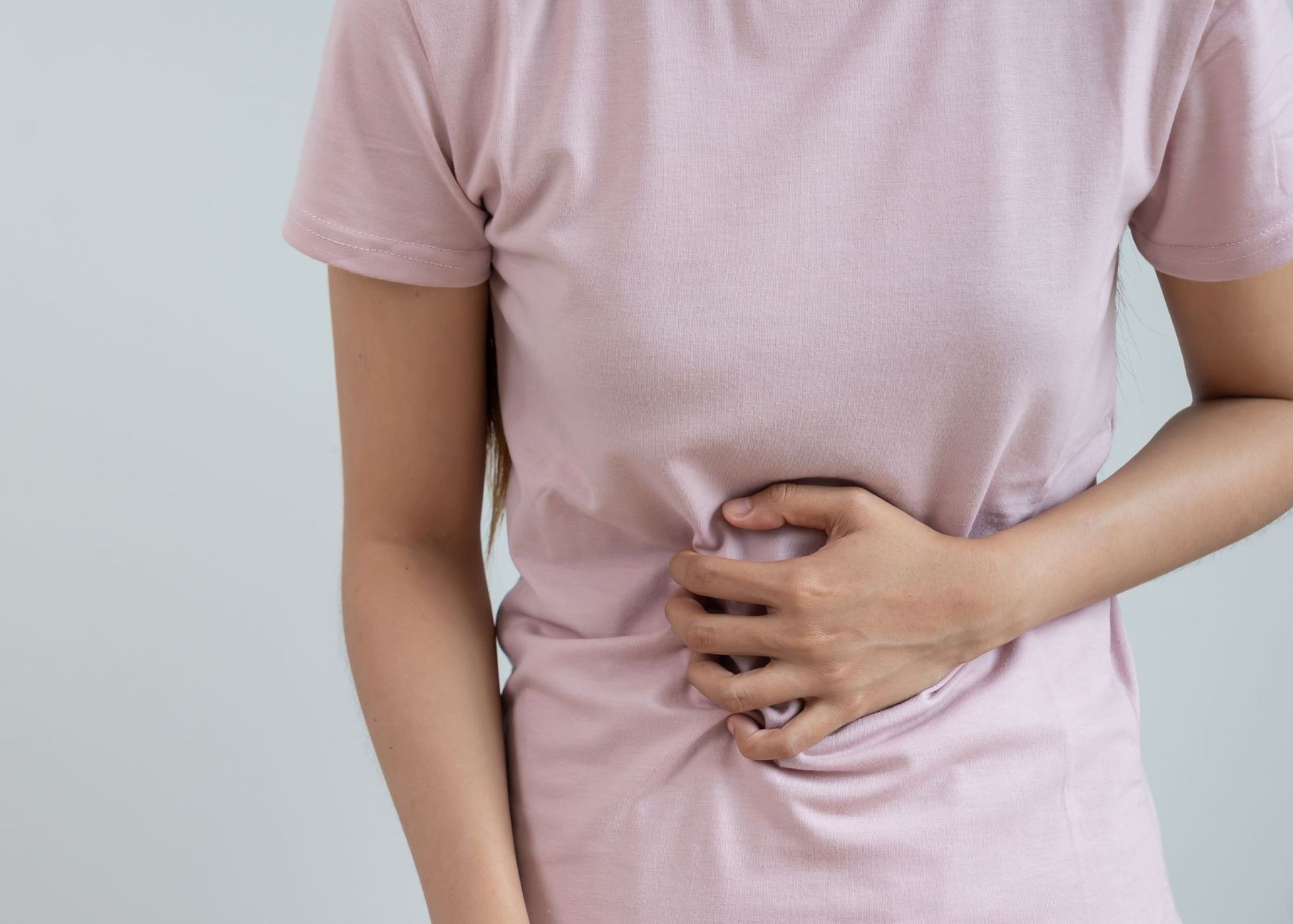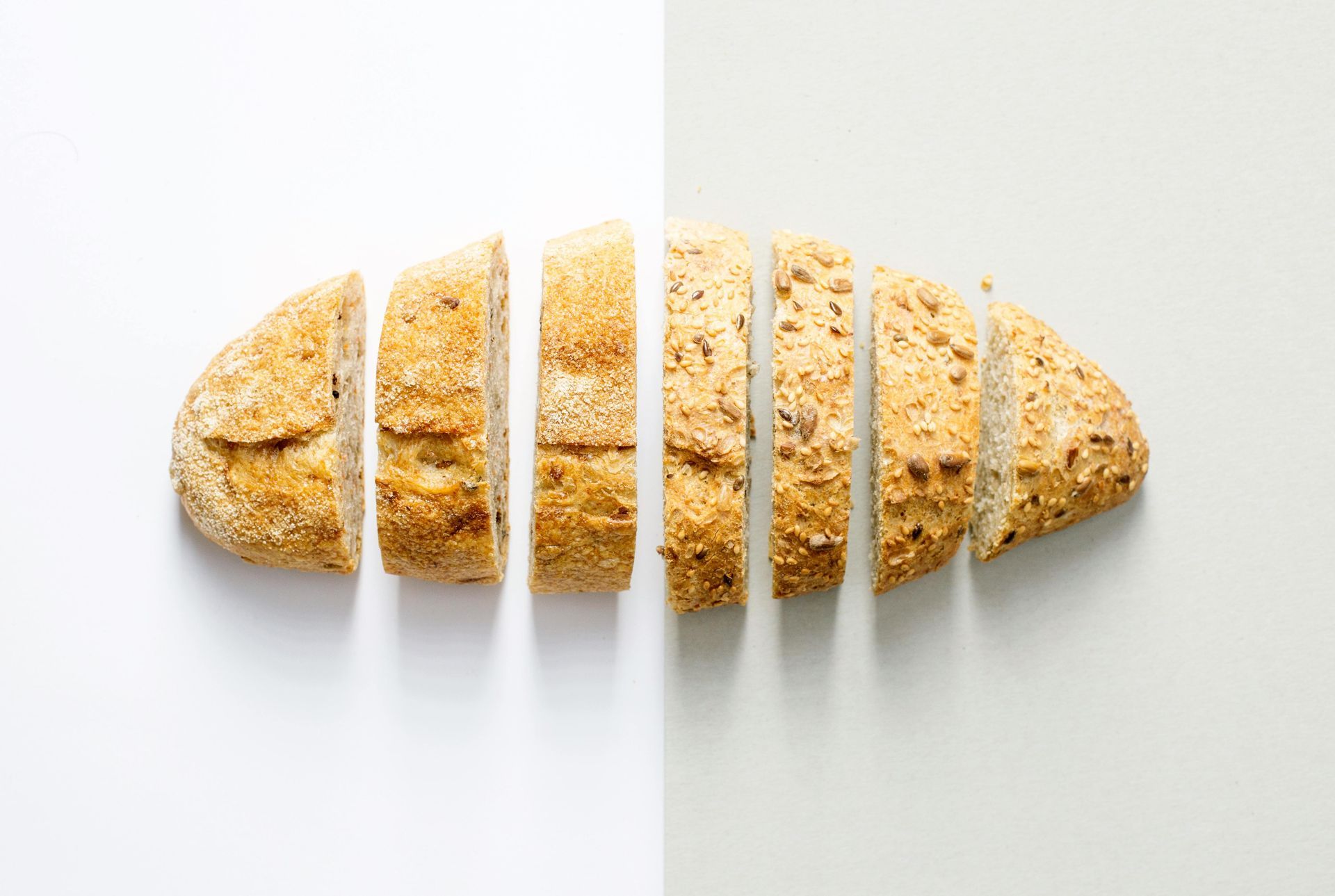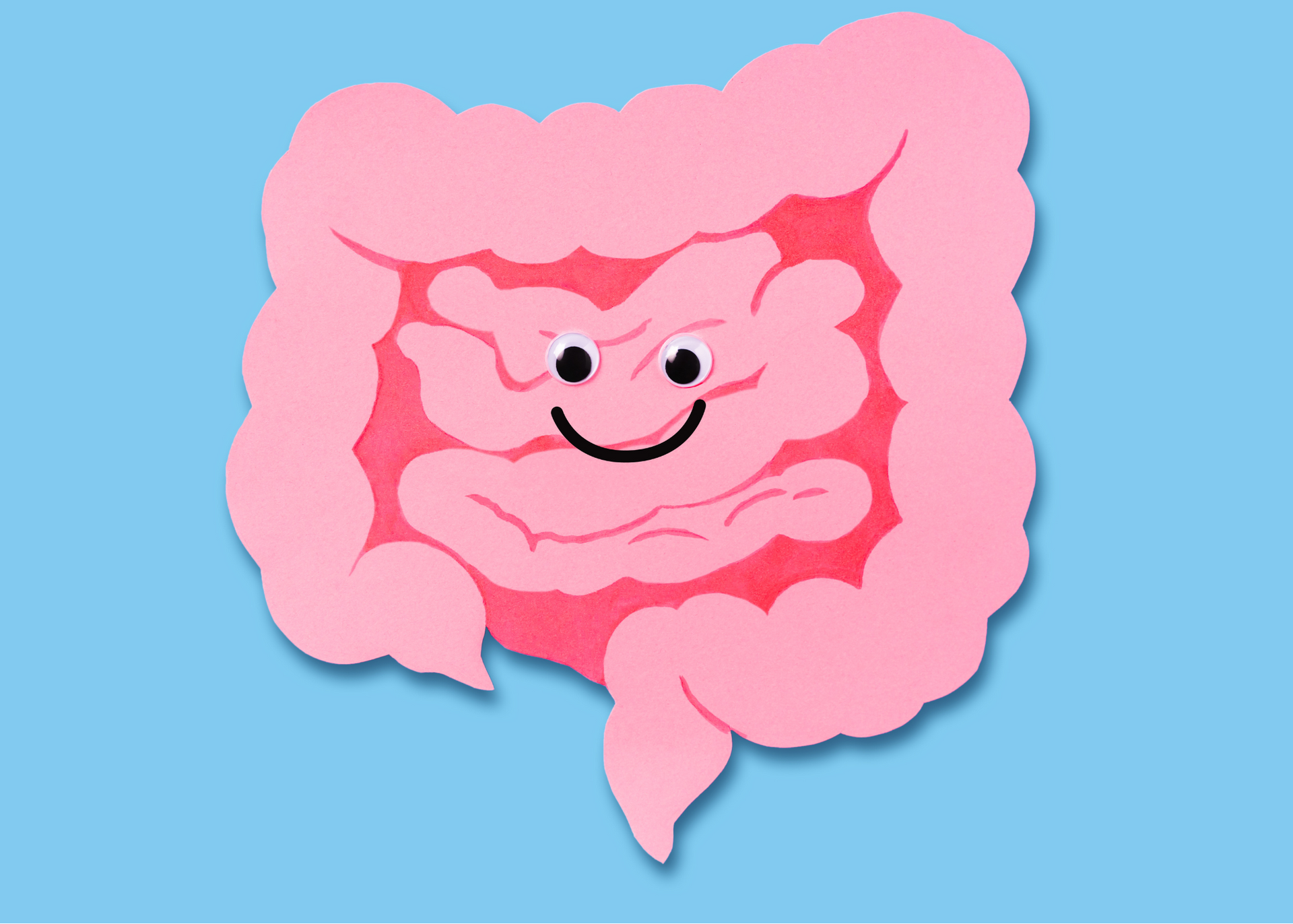Hormone Balance Supplements: A Dietitian's Top Ten Picks
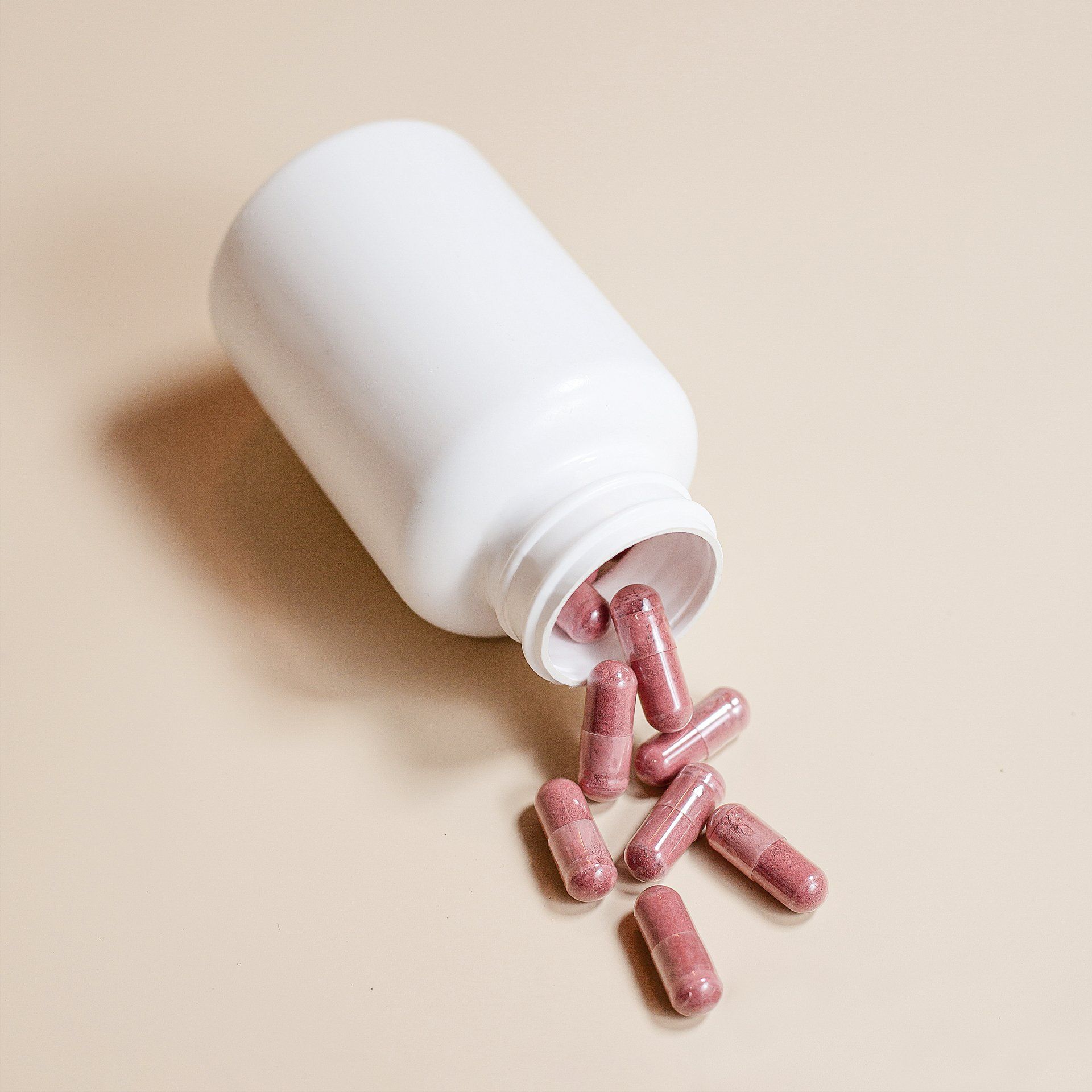
Make no mistake - a healthy diet and lifestyle are essential for hormone health.
But, today’s world is really hard on our hormones.
Between the stress of our busy lives, exposure to plastics and chemicals in products we use, and endless access to foods full of sugar, preservatives, and inflammatory oils - our body is up against a lot.
And sometimes supplements are just what you need to balance your hormones when diet and lifestyle alone aren’t cutting it.
In this article, I outline the science behind my favorite hormone balancing supplements for when your body needs some extra support.
We’ll talk about:
- The important role of hormones
- My top ten supplements for hormone balance
- A few honorable mentions I just couldn’t leave out
- Supplement safety
- How to create a holistic plan for hormone health
- Why it’s so important to work with a professional
The Important Role of Hormones
Hormones regulate nearly every function in our body and when one is out of balance, it can have a domino effect on the rest.
Imbalanced hormones can contribute to many uncomfortable symptoms, including all-day fatigue, unexplained weight gain (especially belly fat), bloating, anxiety and PMS.
Maintaining healthy hormonal balance can be tricky, but it’s possible.
I’ve seen it firsthand as I’ve worked with hundreds of women to achieve hormone balance naturally over the last six years since starting my business.
With a healthy diet, lifestyle and some supplemental support, hormone balance is both possible
and sustainable. Happy hormones now, and happy hormones for years to come.
My Top Ten Supplements for Hormone Balance
It’s hard to choose favorites, but these supplements stand out. There is research to support all of these supplements for hormone balance, and I have also used these supplements in practice with good results.
Let’s dive in!
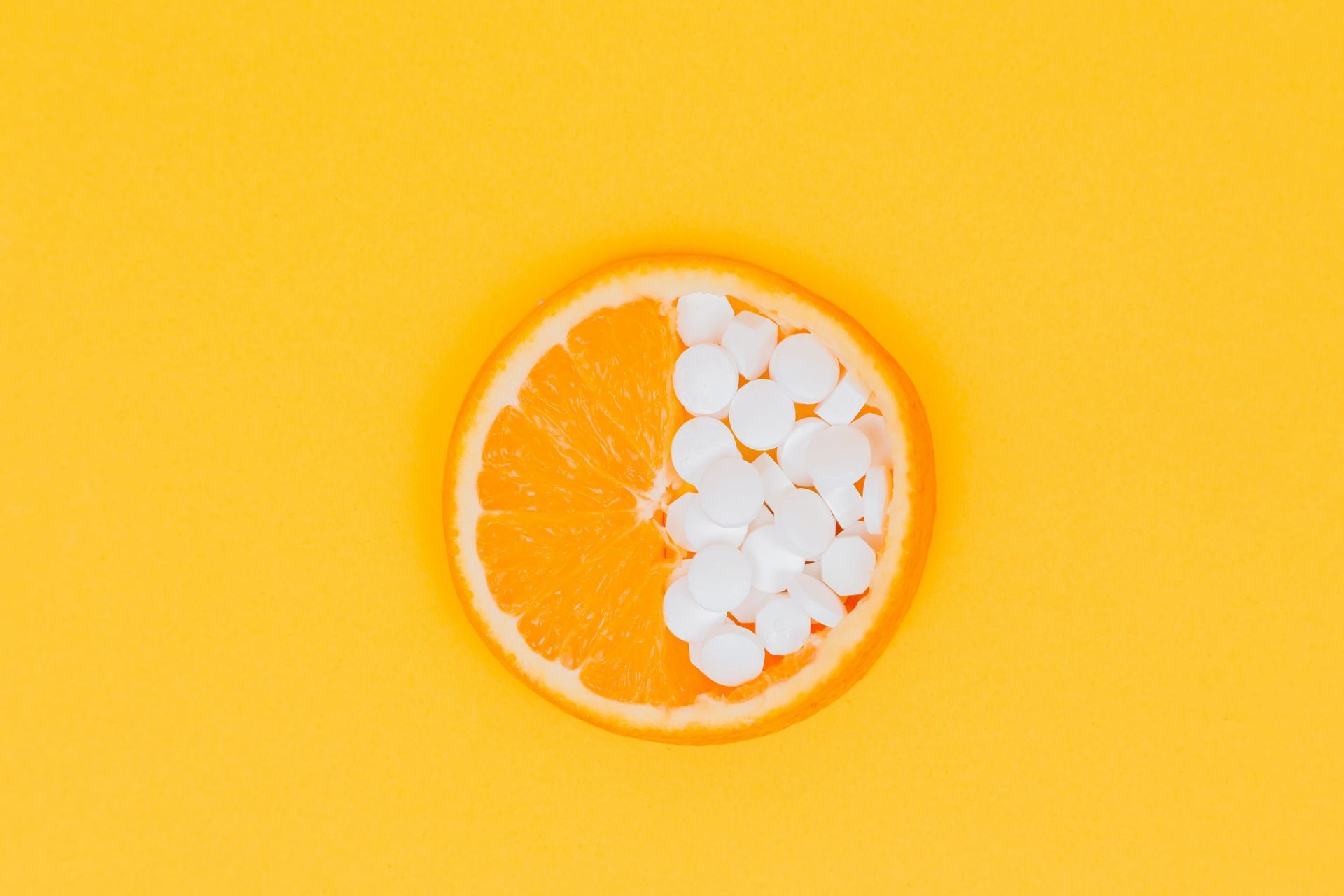
Chasteberry (Vitex)
Chasteberry, also known as Vitex, is a natural extract often used to help with PMS and fertility issues. It contains compounds that play a role in regulating hormone production and menstrual cycles.
Research shows it can reduce breast pain and alleviate uncomfortable PMS symptoms, making it a helpful choice for those dealing with these issues. However, it doesn't have a significant impact on menopausal symptoms.
It's important to note that because chasteberry has phytoestrogen properties, individuals with hormone-sensitive cancers should consult their healthcare provider before incorporating it into their routine.
Best for: Managing PMS symptoms and addressing fertility concerns.
Calcium D-Glucarate
Calcium D-Glucarate is a compound that, when ingested, transforms into a molecule that decreases the activity of an enzyme called beta-glucuronidase.
Beta-glucuronidase is produced by certain bacteria and interferes with the body's detoxification processes, making it harder to eliminate toxins such as medications, environmental pollutants, and excess hormones including estrogen.
Calcium D-Glucarate is particularly useful for detoxifying excessive levels of estrogen and preventing its re-circulation in the body. This helps with both the prevention of and improvement of estrogen dominance.
During the menstrual cycle, calcium levels tend to drop 10 to 14 days before menstruation, which can lead to muscle cramps, headaches, and pelvic discomfort.
Supplementation with calcium D-Glucarate can help alleviate these symptoms and restore calcium levels.
In animal studies, calcium D-Glucarate shows promise in reducing the growth of tumors in estrogen-sensitive breast cancers.
While a small human trial suggested that it could lower cancer risk for some people, more research is needed to confirm its effectiveness.
Best for: Addressing
estrogen dominance and aiding detoxification.
DIM (Diindolylmethane)
DIM is a compound found in cruciferous vegetables like broccoli, cauliflower, and cabbage. It plays a vital role in supporting estrogen metabolism.
Can’t I just eat those foods then?
Eating cruciferous vegetables is a great way to support hormone balance, but getting enough DIM from cruciferous vegetables is tough.
For example, it would take 7 cups of broccoli to get just 10 mg of DIM. The amount of DIM needed to see health benefits in research studies ranges from around 150 to 300 mg.
Both laboratory studies and clinical trials shows that DIM may lower the risk of cancer by pushing estrogen down "good" pathways instead of "bad" pathways.
These "good" pathways are not only associated with decreased risk of breast, uterine, and ovarian cancer, but they're also shown to protect the heart, protect the brain, and promote active release of stored fat during exercise.
DIM also lowers total estrogen levels, and it does this in two ways. It supports the liver in packaging excess estrogen for elimination from the body, and it slows the conversion of testosterone to estrogen.
If you read my previous blog on estrogen dominance, you know it is a common cause of symptoms like weight gain, headaches, PMS, breast tenderness, and more. DIM helps to maintain balanced estrogen levels and avoid estrogen dominance.
It's important to note that pregnant, nursing, or women trying to conceive should avoid DIM due to its hormonal effects.
Best for: Managing estrogen dominance.
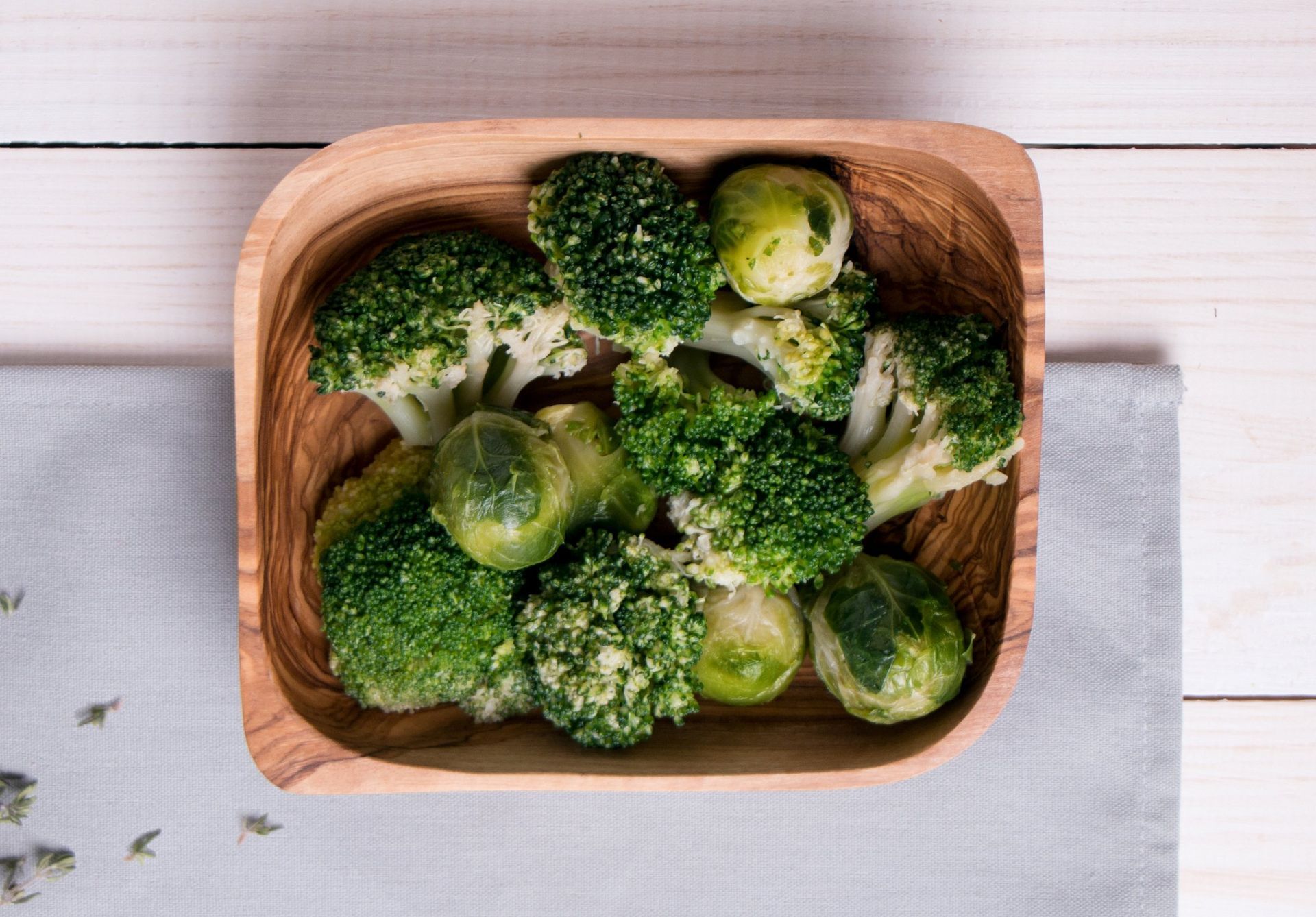
Ashwagandha
Ashwagandha is an adaptogenic herb traditionally used in Ayurvedic medicine to alleviate stress and improve overall well-being. It can help the body cope with stress by reducing its response to stressors.
Ashwagandha has also been shown to reduce oxidative stress within the body.
Ashwagandha has a
broad range of applications, with research suggesting benefits for anxiety, stress, fatigue, joint pain, gut issues, rheumatoid arthritis, diabetes, and even skin conditions. It may improve sleep quality in individuals with insomnia by reducing anxiety and stress.
Ashwagandha also possesses anti-inflammatory properties and promotes insulin sensitivity, leading to stabilized blood sugar levels and, ultimately, balanced hormones.
It can help alleviate symptoms in perimenopausal women, such as hot flashes, night sweats, insomnia, mood changes, and vaginal dryness.
In some studies, it has even improved sexual function and libido in women by supporting healthy testosterone levels.
While Ashwagandha can have positive effects on hormone levels, it should be used with caution by individuals with hormone-sensitive cancers.
Best for: Reducing stress and anxiety, addressing low libido, relieving perimenopausal symptoms, and improving sexual function in women.
Omega-3 Fatty Acids
Omega-3 fatty acids are essential fats known for their anti-inflammatory properties.
Excessive inflammation can disrupt hormone balance by preventing ovulation, increasing estrogen levels, decreasing testosterone, and exacerbating PMS symptoms.
Omega-3s have been shown to support healthy hormone balance, prevent inflammatory acne breakouts, and regulate the menstrual cycle. They reduce prostaglandin levels, compounds that cause uterine muscle contractions and contribute to painful menstrual cramps.
Omega-3s also play a crucial role in supporting a healthy pregnancy and can alleviate depression and hot flashes associated with menopause.
These fatty acids are particularly effective for individuals dealing with polycystic ovary syndrome (PCOS) due to their ability to balance estrogen and testosterone levels.
You can obtain omega-3s through supplements or by including concentrated food sources in your diet such as salmon.
Be very careful about choosing a high-quality omega-3 supplement. Independent tests in 2022 revealed that more than one in ten fish oil supplements is rancid, and half are just under the maximum rancidity limit.
Most fish oil companies add flavoring to mask the fishy smell, which means you won’t be able to tell if the supplement is rancid or not.
A fish oil supplement that is rancid no longer offers health benefits, and could have toxic effects.
Best for: Everyone, as omega-3s offer numerous health benefits.

Magnesium
Magnesium is a mineral involved in over 300 functions throughout the body.
Unfortunately, a lot of people don’t get enough magnesium through their diets, and chronic stress, excessive caffeine and sugar further deplete magnesium levels.
Magnesium supports hormone balance by regulating the stress hormone cortisol, which, in turn, affects other hormones.
Magnesium also influences insulin production and helps stabilize blood sugar levels which is crucial for hormone balance, especially for women with conditions like polycystic ovary syndrome (PCOS).
Magnesium directly supports the production of various hormones including thyroid hormones, progesterone, estrogen, and testosterone.
Women going through perimenopause or discontinuing birth control pills can benefit from magnesium to enhance and stabilize their hormone levels.
Research shows magnesium can reduce hot flashes and improve PMS symptoms, particularly menstrual cramping.
It also serves as a natural sleep aid, helping individuals fall asleep, stay asleep, and reduce nighttime urination.
Magnesium can be found in foods including pumpkin seeds, dark chocolate, brazil nuts, black beans, and
avocados, but it’s difficult to get enough magnesium from food alone.
I have found tremendous benefit from a magnesium supplement, and so have hundreds of my clients. The biggest changes I’ve seen in my clients are improved sleep quality, lower stress levels, improved PMS, and the ability to get more out of their workouts.
Best for: Alleviating stress and anxiety, improving sleep, and supporting hormone balance.

Shatavari
Shatavari is an Ayurvedic herb with a long history of use for female health. It is commonly used to support the production of reproductive hormones, enhance libido, and nourish the ovaries to produce healthy eggs.
While there is limited human research on shatavari, some studies suggest that it may improve antioxidant status, contributing to better female reproductive health, hormonal balance, and reduced inflammation.
There is also some evidence it might reduce the risk of stress-related miscarriages.
Shatavari may also be beneficial for addressing complications like PCOS and supporting follicular growth, egg quality, and infertility associated with inflammation.
Research shows Shatavari can help increase breast milk production. It also might help the uterus heal and tone faster, as well as speed up the rebalancing of sex hormones postpartum.
In animal studies, shatavari has demonstrated the ability to improve ovarian function and increase estrogen levels. However, further human studies are needed to provide more definitive evidence.
I’ve also seen improvements in low progesterone and low testosterone levels when using this herb with my clients. No research has been done on this just yet, but it might be coming in the future.
Best for: Reducing inflammation, improving libido, increasing low hormones, and postpartum.
Maca
Maca is a root traditionally used to enhance fertility, libido, and relieve menopausal symptoms. It helps balance sex hormones, although the exact mechanism of action is not fully understood.
Research involving maca has shown that it can balance hormone levels and alleviate various menopausal symptoms, including hot flashes, night sweats, depression, irritability, and insomnia.
Interestingly, maca had similar effects as common hormone replacement therapy (HRT) used during early menopause, but without the unwanted side effects such as weight gain, elevated blood pressure, depression, or mood swings.
Human studies also show maca can help support libido, sexual health, and vaginal dryness.
Maca can even help with mood swings and boost mood - and surely that will boost libido and sexual health even more!
Best for: Menopause symptoms, sex drive, and mood
Lemon Balm
Lemon balm is a calming herb that supports relaxation, relieves irritability, and relaxes spasms related to period pain and cramping.
Studies have found lemon balm effective in regulating menstrual periods and easing symptoms of PMS, including water retention, cramping, anxiety, insomnia, and social symptoms.
In another study, lemon balm was shown to significantly improve hypoactive sexual desire (low sex drive). Women who took lemon balm experienced notable increases in desire, arousal, lubrication, satisfaction, and a reduction in pain associated with sex.
Lemon balm benefits a number of aspects of both mood and brain power. Research shows women who took lemon balm felt less stressed and more calm, and also experienced improved focus and memory.
Lemon balm is available in various forms, including calming tea blends, capsules, or tinctures. Increasing your intake of lemon balm at the start of your menstrual cycle may help alleviate PMS symptoms if you experience them.
Best for: PMS symptoms including bloating, anxiety and insomnia, mood, and focus.

Evening Primrose Oil
Evening primrose oil is a soothing plant that contains gamma-linolenic acid (GLA), a fatty acid with anti-inflammatory properties.
It's been found to improve PMS symptoms like bloating, headaches, cramps, mood swings, and breast pain. Evening primrose oil can also alleviate symptoms associated with menopause including hot flashes.
While Evening primrose oil doesn't increase progesterone levels, it can help alleviate symptoms related to low progesterone, such as irregular periods, insomnia, anxiety, bloating, hot flashes, and mood swings.
Best for: Breast tenderness, PMS symptoms (headaches and cramps), and hot flashes.
Supplement Honorable Mentions
Vitamin D
Studies have shown that vitamin D3 deficiency is common in women struggling with infertility. Adequate vitamin D levels are associated with a higher likelihood of conceiving with in vitro fertilization (IVF).
Vitamin D also plays a role in regulating reproductive hormones and a deficiency can contribute to estrogen dominance.

Black Cohosh
Black cohosh is beneficial during menopause, helping to reduce symptoms like hot flashes and night sweats.
It may act as a selective estrogen receptor modulator to balance estrogen levels in the body, and as an antioxidant to reduce inflammation.
Iron
Iron is essential to consider if you have heavy periods. Excessive blood loss can lead to anemia, characterized by extreme fatigue and weakness.
Iron also supports thyroid function.
Remember, it's crucial to have iron levels tested before starting a supplement. I see low iron levels all the time in my practice, but sometimes levels are normal or even high.
High iron can cause serious damage to organs including your heart, so only supplement with the guidance of a professional after confirming your iron levels are low.
Cramp Bark, Wild Yam, Raspberry Leaf
While these herbs don't directly influence hormone balance, they can relax uterine muscles, providing relief from menstrual cramps.
They are commonly found individually or as blends in teas and tinctures and can be used as needed during your menstrual cycle.
Anti-inflammatory Nutrients
Curcumin, ginger, and vitamin C are anti-inflammatory nutrients that can ease inflammation and reduce pain associated with hormonal imbalances or PMS.
Curcumin is found in turmeric and ginger, and vitamin C is abundant in foods like broccoli, bell peppers, and citrus fruits.
These nutrients can help support hormone balance and overall well-being.
Probiotics
The relationship between gut health and hormone balance is undeniable. Healthy gut bacteria is essential for eliminating excess hormones like estrogen and progesterone, keeping everything in balance.
Adding probiotics from food and/or supplements is a great way to support digestion. But probiotic supplements don’t just support gut health - they can give you a targeted approach to specific health issues including hormone imbalances.
If you’re curious about a probiotic supplement, I recommend working with a professional to determine which probiotic is right for you.
There are tons of different probiotic strains out there - one strain could be incredibly helpful for IBS, while another could be the missing puzzle piece to your PCOS.
The strain and the dose matter, and an expert can guide you in a way that online articles can’t.

Safety First: Potential Side Effects of Supplements
Supplements can be incredibly helpful to support hormone balance and address a variety of women’s health concerns.
However, it's crucial to consult with a healthcare provider before adding any new supplements to your routine, especially if you have underlying health conditions or are taking medications.
In the United States,
supplements aren’t well regulated. That means they can contain compounds not listed on their label
and
they don’t even have to contain what is listed!
Never buy supplements from Amazon or anywhere online, where
fakes are rampant.
Instead, purchase supplements through a practitioner who uses third-party tested supplements to ensure they are high quality, effective and safe.
Last but not least, always
listen to
your
body.
What works for your friend, your coworker, or the Instagram influencer you follow may not work for you.
Listen to your body’s signals and if something doesn’t feel right, stop!
Creating a Holistic Plan for Hormonal Health
Supplements are just that - supplemental! There’s no way to supplement your way out of a crappy diet.
Happy hormones depend on a foundation of a
hormone healthy diet and lifestyle. You need a healthy foundation for supplements to work their magic.

Why Working with an Expert is Crucial
There are an estimated 30,000 supplements on the market.
It’s virtually impossible for consumers to know which supplements to trust or try without guidance from a medical professional.
Getting a personalized plan from an expert is key for success and safety. Piece mealing supplements together rarely leads to significant results and can be dangerous.
I’ve worked with so many women who have spent tons of money trying five, ten, sometimes twenty supplements, but they’re getting nowhere.
When we work together, it’s a different story.
I can run tests to identify the supplements
your body needs, provide personalized recommendations, I prescribe third-party tested supplements, and I always give instructions on how to take them. Women always tell me it’s a night and day difference.
Working with a professional also means you’re being monitored, so your supplement regimen can continue to be adjusted as needed so you get optimal results.
Not sure which supplements are right for you?
If you’re ready to take control of your hormones (without wasting money on random supplements), start with our Wellness Blueprint.
We go beyond guesswork by using advanced testing
to uncover what your body actually needs.
You'll also get access to our online supplement store, with supplement prescriptions from your practitioner tailored specifically for you—so you can stop guessing and start healing with confidence.
Continue Reading
